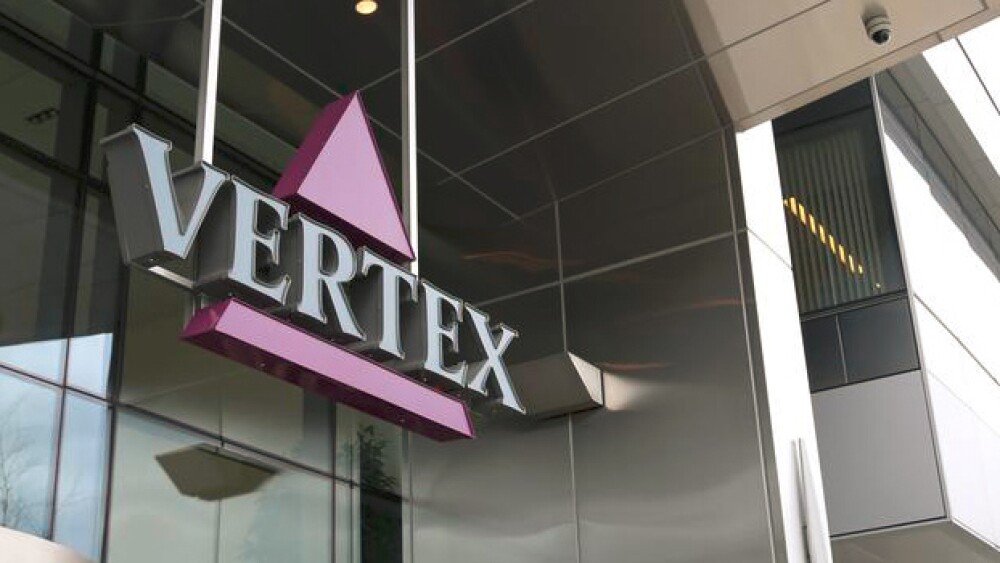In May the FDA placed a hold on the trial and IND for CTX001, an investigational gene editing treatment, citing concerns over questions that had not been addressed in the IND.
The U.S. Food and Drug Administration (FDA) has lifted a clinical hold and accepted an Investigational New Drug Application (IND) for an experimental sickle cell disease treatment being co-developed by Vertex Pharmaceuticals and CRISPR Therapeutics.
In May the FDA placed a hold on the trial and IND for CTX001, an investigational gene editing treatment, citing concerns over questions that had not been addressed in the IND. The two companies initially submitted the IND in April in support of a planned Phase I/II trial.
Shares of CRISPR Therapeutics have soared in premarket trading as a result of the announcement. The stock is up nearly 12 percent to $40.98. It closed at $36.64 on Wednesday. Shares of Vertex, which took a beating on Wednesday as part of the collateral damage from investor unease over inflation, continues to fall in premarket trading. The stock is down a little more than 2 percent in early trading to $172.27. It fell about 5 percent Wednesday to close at $176.43.
In the brief statement announcing the clinical hold had been lifted, the two companies did not specify what concerns the FDA may have had, nor how those questions were answered.
The two companies paired up to co-develop CTX001 in December 2017, further cementing a partnership they initially established in 2015. CTX001 is an investigational ex vivo CRISPR gene-edited therapy for patients suffering from β-thalassemia or sickle cell disease. As part of the treatment, a patient’s hematopoietic stem will be genetically engineered to produce high levels of fetal hemoglobin (HbF; hemoglobin F) in red blood cells. HbF is a form of the oxygen-carrying hemoglobin that is naturally present at birth and is then replaced by the adult form of hemoglobin. The edited blood cells are reinfused to the patients and are then expected to produce red blood cells that contain the fetal hemoglobin in the body. The elevation of HbF by CTX001 has the potential to alleviate transfusion-requirements for β-thalassemia patients and painful and debilitating sickle crises for sickle cell patients, the companies said.
In August the two companies received clearance to launch Phase I/II clinical trials in Europe for β-thalassemia patients and sickle cell disease. Vertex and CRISPR are currently enrolling patients with transfusion-dependent β-thalassemia in a Phase 1/2 trial in β-thalassemia in Europe. The companies said they are on track to begin European Phase I/II trials in sickle cell disease by the end of 2018.
The decision to begin trials with CTX001 was based on preclinical data presented at the American Society for Hematology in December that showed “clinically relevant increases in fetal hemoglobin and a high editing rate that support the advancement of CTX001 into the planned trials in β-thalassemia and sickle cell disease in 2018.”
For CRISPR the FDA’s decision was critical, given that CTX001 is the company’s most advanced program. Being able to advance the program is critical to showcasing the capabilities of the company. It could also help alleviate some concerns around CRISPR technology, particularly following a July study that raised concerns over CRISPR-Cas9 gene editing may cause some dangerous side effects.
The CRISPR and Vertex study isn’t the only gene-editing study the FDA has placed a hold on this year. The FDA placed a clinical hold on Solid Biosciences Inc.’s experimental gene therapy treatment for Duchenne muscular dystrophy. The clinical hold was placed on SGT-001, a novel adeno-associated viral (AAV) vector-mediated gene transfer after the company’s gene therapy expert James Wilson, a key member of Solid’s scientific advisory board, resigned from the company over safety concerns. The clinical hold was lifted in June after the company satisfied all FDA concerns.





